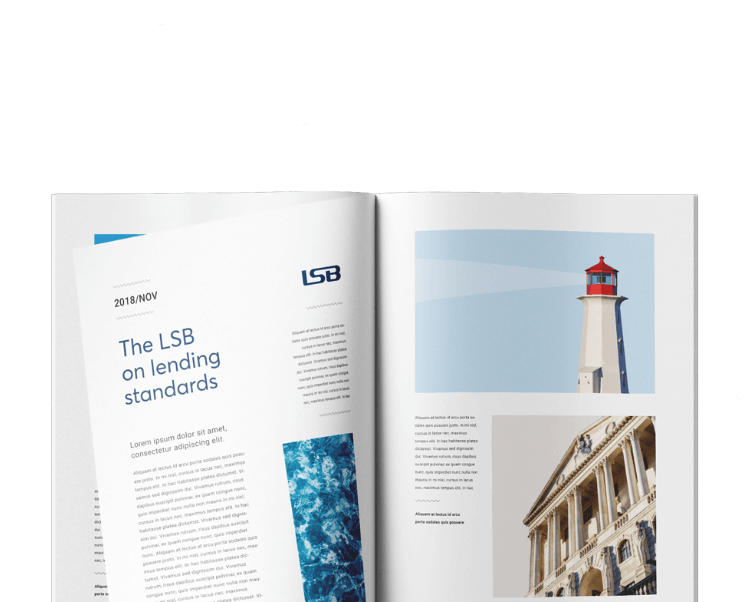What are personal guarantees?
Business lending in the UK can be secured against assets or linked to guarantees to give lenders confidence that they will be repaid if a business becomes unable to meet the terms agreed. This helps ensure SMEs are able to access the finance they need to grow and thrive.
A personal guarantee sees an individual – typically, but not always, a business owner or company director –agree to act as a guarantor for lending to a business. If the business is unable to repay the lending, the lender may ask the guarantor to repay what is owed instead.
Personal guarantees are an established feature of the commercial lending market and play an important role in supporting access to finance. Not all businesses have their own assets they can provide as security, the asset may not be suitable, while others simply might not wish to offer a business asset as security. Without the option of personal guarantees as an alternative form of collateral for business lending, the availability of finance for SMEs might decrease, or the cost of borrowing might increase.
How do lenders use personal guarantees – is there a standard approach?
The approach to personal guarantees taken by the LSB’s registered firms varies, reflecting the wide range of products they have to support the UK’s diverse SME population. Our work has identified that personal guarantees are not necessarily sought or taken for all lending products or borrowing amounts and are often in place on a case-by-case basis. According to information on personal guarantees provided by some of our registered firms, around one-third of the volume of these firms’ lending to UK limited companies is linked to a personal guarantee.
The LSB’s Standards of Lending Practice for business customers (the ‘business Standards’) set out protections for SMEs across the lending journey. These Standards include provisions on personal guarantees designed to ensure the right outcomes for their customers. Among other things, the Standards have long required that:
- Lenders provide clear information on the features of any lending product at the pre-application stage to enable the customer to decide whether the product is right for the needs of the business. This includes key areas of breakage costs and whether security or a guarantee may need to be provided and why.
- If a personal guarantee is required, lenders must make a potential guarantor aware of their obligations under the agreement and make clear that they have the option to seek legal advice should they wish to do so.
- Lenders must make sure that a guarantor is able to request information regarding their current level of liability (as long as the business customer gives their permission and confidentiality is not breached).
- Lenders must provide business customers or guarantors in financial difficulty with appropriate support and fair treatment in order to help them deal with their debt in the most suitable way.
According to the information provided to us by some registered firms, personal guarantees are called upon rarely: approximately 2% of personal guarantees were called on in a recent twelve-month period, with some lenders calling on under 1% of guarantees. Calling on a guarantee does not always result in enforcement action, with some lenders restructuring or writing off lending instead. The number of complaints about personal guarantees reported by registered firms is low, too.
Firms that are not registered with the business Standards do not have to abide by these provisions and may take their own approaches to personal guarantees.
Why are you making changes to what the Standards say about personal guarantees?
We always keep our Standards and Codes under review to make sure they are working effectively to ensure financial services customers have access to the right outcomes. In 2023, we carried out a full review of the business Standards and found, overall, they were providing the appropriate level of protections. However, based on this review and our ongoing compliance activity, we identified personal guarantees as an area where there was scope to strengthen the Standards and accompanying guidance.
We found isolated instances where registered firms’ processes for reviewing personal guarantees could be working more effectively to ensure that the information they hold remains current, and where lending is repaid or where there are changes at director level that these changes are taken into account. During our consultation process, we had some feedback that complaints about personal guarantees typically arise once a guarantor is no longer associated with a business.
Following on from the publication of our report on the business Standards consultation earlier this year, we have looked at personal guarantees in more detail. Having gathered more information on how personal guarantees are used, and having engaged extensively with registered firms, regulators and industry stakeholders, we have decided to make changes to our Standards and guidance.
What changes are you making, and how will they make a difference to SMEs, lenders and guarantors?
The changes we are making to the Standards and guidance will help ensure lenders are clear with guarantors about what they are signing up to, and help avoid situations where a guarantor is surprised to find out they are personally liable for lending to a business. We are updating existing protections and guidance, as well as introducing a new requirement for lenders.
The key changes include:
- A new requirement for lenders to provide guarantors with annual reminders that a personal guarantee remains in place. This will ensure lenders can maintain up-to-date records on who is liable for a guarantee and will help guarantors keep track of any liability. These reminders will serve as prompts for guarantors to speak to a lender if they are no longer associated with a business, or if they believe the lending is no longer outstanding.
- Updates to the requirements for registered firms on advising potential guarantors of the need to seek independent legal advice about whether becoming a guarantor is the right choice for them.
- Enhanced guidance for lenders on providing information to a guarantor about how the personal guarantee will function and their obligations under it. The amendments to the guidance are designed to enhance the transparency of information provided at the pre-sale stage; reflect the importance of providing clear information to guarantors so they understand the commitment they are making; ensure that potential guarantors are fully aware that they can seek legal advice and that they are encouraged to do so; and reflect that firms should have clear and consistent internal policies on the use of personal guarantees that take into consideration any available internal data and management information.
In making the changes, we’ve sought to add protections for SMEs and guarantors at the same time as avoiding adding friction to the lending journey that could leave SMEs facing worse outcomes because they can’t access crucial funding. We would not want to put in place requirements that put barriers in the way of SMEs borrowing or which restricts access to finance for the SME market.
The updates to existing provisions in the Standards and accompanying guidance will apply from 12 September 2024. The new requirements on annual reminders regarding guarantees will apply from 8 September 2025.









